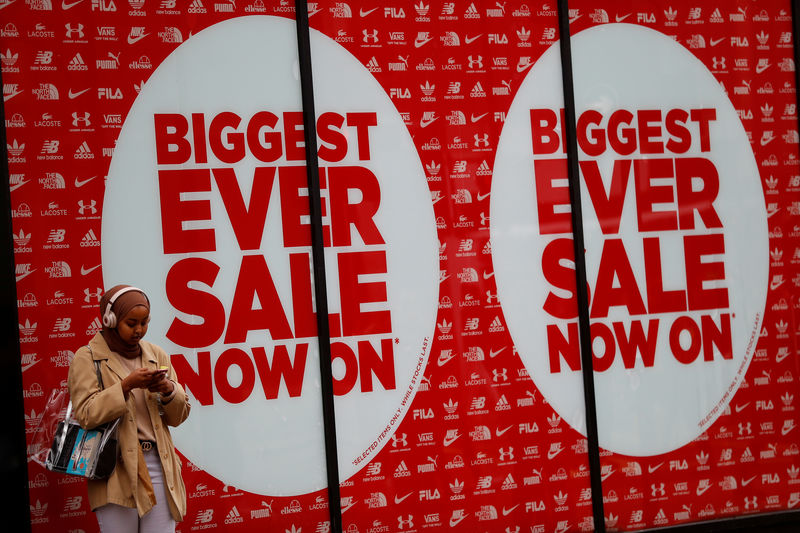By Andy Bruce and William Schomberg
LONDON (Reuters) - British inflation fell to a two-year low in January, dipping below the Bank of England's target and offering some relief to householders who have tightened their belts ahead of Brexit.
Consumer prices rose at an annual rate of 1.8 percent in January after a 2.1 percent increase in December, the Office for National Statistics said on Wednesday. A Reuters poll of economists had forecast 1.9 percent.
British consumers have been pressured by inflation after a slump in sterling of more than 10 percent against the dollar and euro since the Brexit referendum in June 2016.
Inflation peaked at a five-year high of 3.1 percent in November 2017, when British households faced much greater price increases than the European Union average.
That difference is now negligible but economists say higher inflation could return in the event of a no-deal Brexit.
"The further falling back in inflation facilitates the Bank of England maintaining a 'wait and see' approach on interest rates until after the UK leaves the EU," Howard Archer, chief economic adviser to the EY ITEM Club consultancy, said.
Last week the BoE said inflation was likely to fall below 2.0 percent in coming months, in part reflecting a fall in oil prices.
Sterling was little changed against the dollar and euro following the data but UK government bond prices rose, pushing 10-year yields down by 2 basis points.
Despite the fall in inflation since late 2017 and wages growing at their fastest in a decade, businesses have reported a downturn in consumer spending in recent months.
Surveys show households are worried about the outlook for 2019, with Britain on course for a no-deal departure from the EU on March 29 unless Prime Minister Theresa May can broker a revised deal with the EU that would be accepted by her divided party and parliament.
January's fall in inflation was due mainly to cheaper energy, "partly offset by rising ferry ticket prices and air fares falling more slowly than this time last year," ONS statistician Mike Hardie said.
The ONS figures also suggested less short-term pressure in the pipeline for consumer prices.
Among manufacturers, the cost of raw materials was 2.9 percent higher than in January 2018.
That marked the slowest annual increase since June 2016, the month of the Brexit referendum. Economists polled by Reuters had expected input prices to rise by 3.8 percent.
Still, household face the prospect of higher bills for essentials. On Wednesday npower became the third of Britain's top six energy providers this week to raise prices, following the announcement of a new, higher price cap from the regulator.

Separately, the ONS said UK house prices in December rose by an annual 2.5 percent, the smallest increase since July 2013. Prices in London alone fell for a sixth month running, down 0.6 percent on the year.
(editing by John Stonestreet)